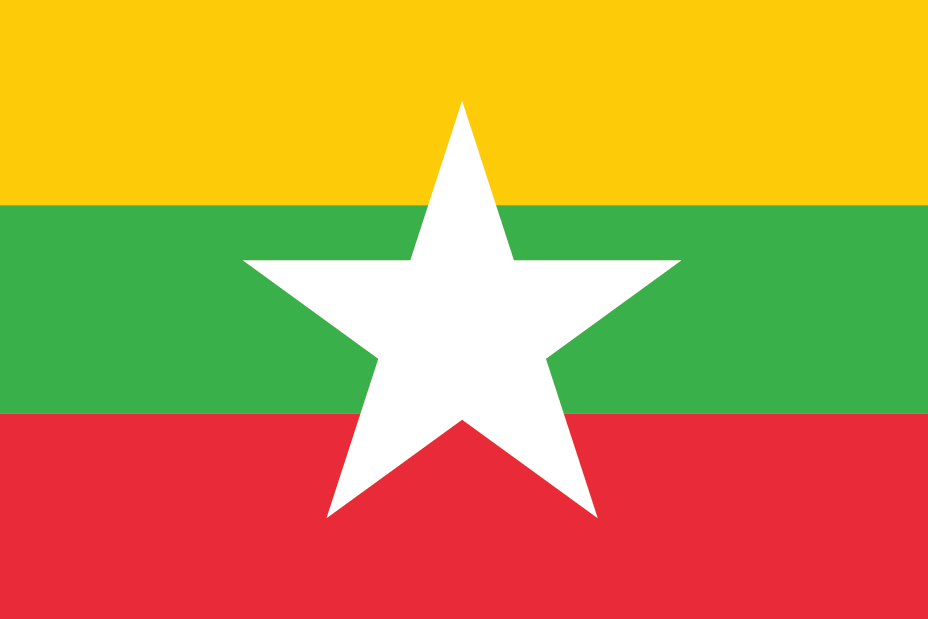
Sustainability Efforts
Country: Myanmar
Explore sustainability efforts in Myanmar. The United States Environmental Protection Agency (“EPA”) said it well when they state:
“Sustainability is based on a simple principle: Everything that we need for our survival and well-being depends, either directly or indirectly, on our natural environment. To pursue sustainability is to create and maintain the conditions under which humans and nature can exist in productive harmony to support present and future generations.”
About Myanmar
Myanmar, located in Southeast Asia, is a country with a rich cultural heritage, ancient temples, and diverse landscapes. It offers iconic attractions like the temples of Bagan, the serene Inle Lake, and the bustling city of Yangon with its magnificent Shwedagon Pagoda. Myanmar’s cuisine features flavorful dishes like mohinga and tea leaf salad. The country’s ethnic diversity is reflected in its festivals, traditional arts, and vibrant markets. Myanmar’s natural beauty includes picturesque mountains, pristine beaches, and dense forests, making it a destination for trekking, water activities, and wildlife encounters. Despite its recent challenges, Myanmar’s warm hospitality and cultural treasures continue to captivate travelers seeking an authentic Asian experience. Sustainability efforts in Myanmar will enhance the country’s future.
Sustainability Efforts
Toggle each button below to “open” and “close” the presented data.

The government of Myanmar, along with international organizations and NGOs, is implementing various initiatives to combat poverty. These include social welfare programs, livelihood development projects, and microfinance schemes.

Myanmar faces challenges in addressing hunger and malnutrition. The government, in collaboration with international organizations, is working to improve food security through initiatives such as agricultural development programs, rural infrastructure projects, and promoting sustainable farming practices.

The government of Myanmar is making efforts to improve healthcare services and access. It is investing in infrastructure development, training healthcare professionals, and expanding the coverage of essential healthcare services. However, healthcare challenges persist, especially in rural areas. According to the World Bank, in 2019, Myanmar spent around 7% of its GDP on healthcare, and the number of healthcare workers per capita was below the global average.

Myanmar recognizes the importance of education and has been taking steps to improve access and quality. Efforts include building more schools, providing teacher training, and promoting inclusive education. However, significant challenges remain, including limited resources, infrastructure gaps, and disparities in educational opportunities across different regions. As of 2020, the literacy rate in Myanmar was estimated at around 76.1% for the total population aged 15 and above.

Myanmar is striving to promote gender equality and women's empowerment. The government has enacted laws to protect women's rights and increase their participation in decision-making processes. Efforts are being made to address issues such as gender-based violence and discrimination. However, significant gaps still exist in women's representation in leadership positions and access to education and economic opportunities.

Myanmar faces challenges in providing access to clean water and sanitation facilities, particularly in rural areas. The government, with support from international organizations, is working to improve water and sanitation infrastructure, promote hygiene practices, and increase access to clean drinking water.

Myanmar is making efforts to promote the use of clean and renewable energy sources. It aims to increase the share of renewable energy in its energy mix and improve energy efficiency. The government has implemented policies to attract investment in renewable energy projects, particularly in hydropower, solar, and wind energy. However, specific statistics on the progress of these efforts are not readily available.

Myanmar has been striving for sustained economic growth through various initiatives, including attracting foreign investment, improving infrastructure, and diversifying the economy. However, the political situation and other challenges have had an impact on the country's economic progress.

Myanmar is working to promote industry innovation and technological advancement. Efforts include supporting research and development, fostering entrepreneurship, and creating an enabling environment for innovation and investment.

Myanmar recognizes the need to reduce inequalities and promote social inclusion. Efforts include policies to address income disparities, improve access to basic services, and promote inclusive development.

Myanmar is working towards sustainable urban development by promoting efficient land use, improving infrastructure, and enhancing urban planning. Efforts are being made to address issues such as urban poverty, slums, and environmental degradation in cities.

Myanmar acknowledges the importance of responsible consumption and production practices. Efforts are being made to promote sustainable resource management, reduce waste, and raise awareness about responsible consumption. The government, along with civil society organizations and international partners, is implementing initiatives to promote sustainable production processes and encourage responsible consumption patterns.

Myanmar is actively engaged in addressing climate change and implementing measures to reduce greenhouse gas emissions. The government has developed a national climate change strategy and is working to increase resilience to climate impacts, promote renewable energy, and enhance forest conservation efforts.

Myanmar recognizes the importance of protecting its aquatic environment, including rivers, lakes, and coastal areas. Efforts are being made to address issues such as water pollution, overfishing, and habitat degradation. The government is working on implementing sustainable fisheries management practices, promoting conservation measures, and strengthening regulations to protect aquatic ecosystems.

Myanmar is committed to preserving its rich biodiversity and natural resources. Efforts include the establishment of protected areas, conservation programs, and promoting sustainable land and forest management practices. The government is also working on strengthening environmental regulations and promoting sustainable tourism.

Myanmar has been working towards strengthening peace and justice institutions to promote stability and ensure the rule of law. The country has made efforts to improve the judicial system, enhance legal frameworks, and promote access to justice for all citizens. However, the political situation and ongoing conflicts pose challenges to the full realization of peace and justice.

Myanmar recognizes the importance of partnerships and international cooperation in achieving sustainable development goals. The government collaborates with various stakeholders, including international organizations, civil society, and the private sector, to implement development projects and programs. These partnerships aim to mobilize resources, share knowledge and expertise, and promote sustainable development in Myanmar.



